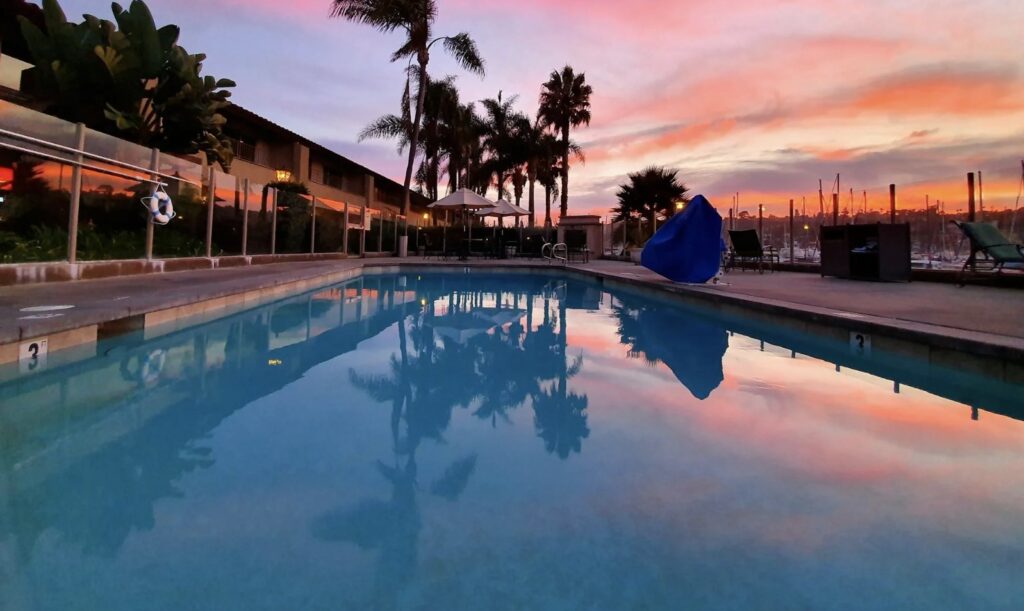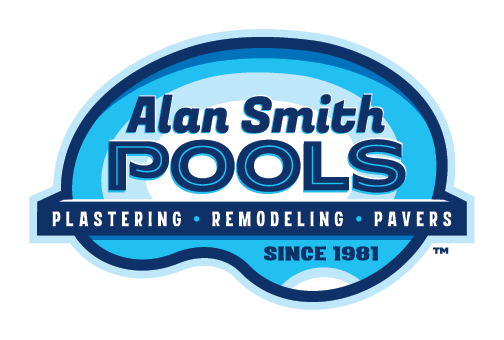Are you a homeowner deciding between a Pebble Tec pool finish and a quartz pool finish for your backyard oasis? This decision goes far beyond color—these two materials vary in durability, maintenance routines, and budget considerations. If you’re exploring your options, you might find additional details in our Selecting a Surface: Pool Surfaces resource.
Pebble Tec at a Glance
Pebble Tec is a premium finish composed of small, rounded pebbles embedded in a cement mixture. According to Emerald Custom Pools (see References), it can last up to 20 years, offering excellent resistance to chemical imbalances and direct sunlight. This sturdy formulation means you can go longer before needing resurfacing or costly repairs.
One major benefit of Pebble Tec is its natural, textured appearance. These pebbles create a slip-resistant surface, but some homeowners find them slightly rough on bare feet. Newer variations, like PebbleSheen, utilize smaller pebble sizes to achieve a softer texture without sacrificing long-term strength.
Quartz Finishes Explained
Quartz finishes are made by blending crushed quartz, white silica sand, and cement to produce a smooth and luminous surface. This finish is typically more budget-friendly, with a general lifespan of about 10 to 12 years (Emerald Custom Pools, see References). However, consistent chemical balancing is vital to reduce the risk of discoloration and cracks over time.
Many homeowners appreciate quartz because of its sleek look and comfortable feel underfoot. If you’re seeking a refined option, you might explore our white plaster quartz solutions, which offer a soft finish while still showcasing the vibrant shimmer that quartz aggregates are known for.
Cost Factors
One of the biggest points of difference is the initial price. Quartz costs can begin around $3,500 and extend up to $8,000 for an average-sized residential pool, making it appealing for those on a tighter budget. Pebble Tec typically costs 45–60% more—often landing between $10,000 and $15,000, due to its specialized materials and longer lifespan.
Homeowners occasionally opt for quartz when cost is the primary concern, whereas Pebble Tec may add resale value and reduce the need for multiple resurfacing projects down the line. For an in-depth look at how pool finishes fit into broader budgets, check out our insights on pool building costs in Southern California.
Maintenance and Lifespan
Pebble Tec’s thick aggregate and pebble matrix keep it resistant to staining and algae buildup, cutting down on weekly cleaning time. With proper water chemistry, households can go two decades or longer before needing another finish application. This longevity often justifies the higher initial investment.
Quartz finishes generally last around 10–12 years, which is impressive but still shorter when compared to Pebble Tec. Because quartz is more sensitive to chemical imbalances, it’s wise to keep pH, alkalinity, and calcium levels in check. To learn how resurfacing and balanced water chemistry extend a finish’s life, explore our pool resurfacing process for best practices.
Texture and Aesthetic Appeal
If you prefer an organic, riverbed aesthetic, Pebble Tec’s naturally curved pebbles and earth-toned color blends may catch your eye. These finishes often mimic lagoon-like features, adding to a backyard’s “vacation at home” vibe. On the other hand, quartz delivers a shimmering, sleek appearance that looks especially bright under pool lighting at night.
Families with young children frequently lean toward quartz for its smoother feel. That said, Pebble Tec’s PebbleSheen offering narrows the gap by incorporating smaller pebble aggregates. Both finishes have a wide range of color options, so you can coordinate your pool’s tone with the surrounding hardscape or tile design.
Saltwater Compatibility
Saltwater systems introduce additional corrosive elements to a pool, so chemical resistance becomes even more important. Pebble Tec generally stands out for salt system use because its surface materials hold up to salinity with fewer concerns about etching or discoloration. Quartz can handle salt pools but is slightly more vulnerable if the water chemistry strays outside recommended levels for an extended period.
If you’re already set on a saltwater pool, factor in that Pebble Tec might reduce long-term tasks such as acid washing or patch repairs. Nevertheless, a quartz finish will still perform reliably if you’re diligent about testing salinity and chemical balance.
Other Key Considerations
Before making your final choice, think about how often the pool will be used, the local climate, and whether you want a distinctive natural habitat or a modern, polished look. For extra guidance on planning a pool remodel—especially if you’re integrating a new surface with add-ons like fire pits or upgraded pumps—consult our guide to pool remodeling. You’ll find tips on selecting finishes, budgeting for equipment, and more.
It’s also worth noting that installation quality can make or break the outcome of any finish. Poor application methods can lead to early cracking, shading inconsistencies, or rough patches that take away from the final results. Always work with experienced professionals who understand the specialized techniques required for Pebble Tec and quartz finishes alike.
Which One Is Right for You?
Choosing between Pebble Tec and quartz comes down to your budget, preferred aesthetic, and how invested you are in long-term durability. Pebble Tec’s higher cost provides a strong payoff in terms of lifespan, slip resistance, and minimal day-to-day upkeep. Meanwhile, quartz stands out for its smoother texture and a lower initial price tag, albeit with a shorter lifespan.
If you’re eager to create a distinctive backyard destination and don’t mind the premium, Pebble Tec might be your best bet. If comfort and cost savings are top priorities, quartz remains a great alternative that still provides an appealing look and moderate lifespan.
Wrapping Up
Deciding which finish is right for you can be a big step toward building an inviting pool environment. Whether you want the rustic charm of Pebble Tec or the sleek feel of quartz, consider how each solution aligns with your budget and maintenance style. For further assistance on selecting the perfect finish or discussing renovation plans, feel free to reach out through our Contact Us page.
With the right choice today, you’ll enjoy seasons of relaxation and peace of mind tomorrow—knowing your pool finish can handle the demands of every cannonball, pool party, and lazy weekend under the sun.
References
Emerald Custom Pools. (n.d.). Quartz vs Pebble Pool Finish: Which is Best? Retrieved from https://emeraldcustompools.com/quartz-vs-pebble-pool-finish-which-is-best/
Blue Haven Pools. (n.d.). Swimming Pool Interior Finishes: Comparing Marcite, Quartz, and Pebble. Retrieved from https://articles.bluehaven.com/swimming-pool-interior-finishes-comparing-marcite-quartz-and-pebble
Clements Pools. (n.d.). Quartz vs Pebble Pool Finish. Retrieved from https://clementspools.com/quartz-vs-pebble-pool-finish/







